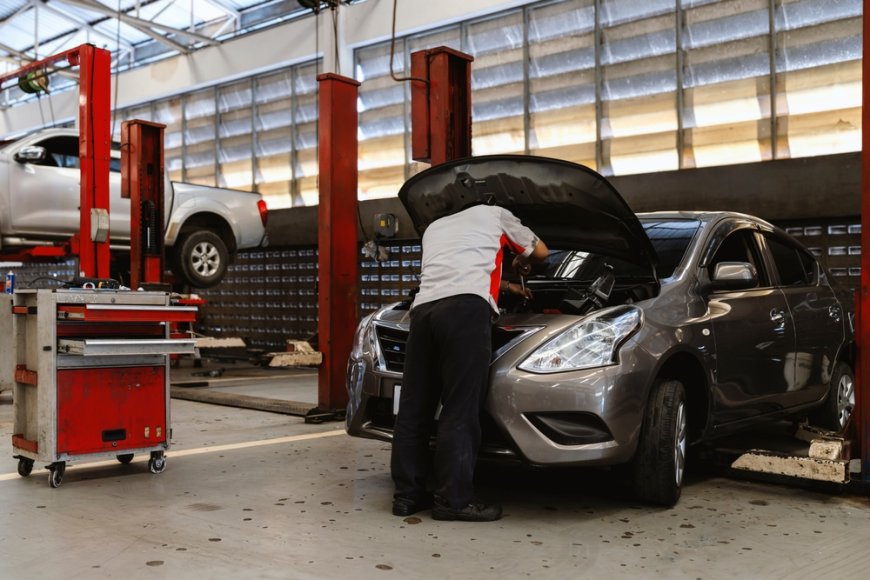Sharing Your VIN: Is It Risky or Safe?
In the automotive world, the Vehicle Identification Number (VIN) is like a vehicle’s fingerprint.

In the automotive world, the Vehicle Identification Number (VIN) is like a vehicle’s fingerprint. This unique 17-character code holds crucial information about a car's make, model, year, and history. When selling or scrapping a vehicle, you might be asked to share your VIN, but is it safe to do so?
Let’s explore whether sharing your VIN is risky or safe and how it relates to services such as scrap car removal in Sydney and cash for junk cars.
What is a VIN, and Why is It Important?
A Vehicle Identification Number is a standardised code assigned to every vehicle and helps authorities track its history, ownership, and specifications. It can reveal:
-
Accident history
-
Service records
-
Title status (e.g., stolen, salvage, or clean)
-
Recall information
The VIN is crucial for several reasons. Law enforcement agencies use it to recover stolen cars, while potential buyers can check for discrepancies between the VIN history and the seller’s claims. Auto repair shops may also use the VIN to source compatible components, ensuring a precise match for repairs. Additionally, insurance companies rely on the VIN to assess risk, verify claims, and provide accurate quotes for policies.
For potential buyers and scrap car removal companies, the VIN helps verify a vehicle’s information before making a deal. But should you be cautious when sharing these details?
Is Sharing Your VIN Risky?
Generally, sharing your VIN is not considered a significant security risk. However, certain scenarios need extra caution.
Potential Risks of Sharing Your VIN:
-
Title Fraud: Fraudsters can use a valid VIN from one car to create counterfeit paperwork for a stolen or salvaged vehicle. This illegal activity, called VIN cloning, might lead to legal trouble for unsuspecting buyers.
-
Unauthorized Access to Your Vehicle’s History: If scammers get your VIN, they might generate a car history report using online databases. While this isn’t a direct threat, it could be misused to manipulate buyers or sellers.
-
Fake Listings: A few scammers use real VINs from online listings to create fake ads and trick buyers into sending deposits for non-existent vehicles.
When is It Safe to Share Your VIN?
Sharing your VIN is safe in several cases, mainly when dealing with reputable businesses like certified scrap car removal services in Sydney or legitimate buyers. Below are safe scenarios:
-
Selling Your Car: If you’re selling your vehicle to a private buyer, dealership, or junk car removal service, sharing your VIN verifies the car’s history and value.
-
Getting an Offer for Scrap Car Removal: Companies that provide cash for junk cars in Sydney need the VIN to assess your car’s condition and legality before offering an accurate quote.
-
Vehicle Insurance and Registration Checks: Insurance companies and government agencies may request your VIN to process claims, register your vehicle, or check for recalls.
How to Share Your VIN Safely?
While sharing your VIN is generally safe and take precautions to make sure that you don’t fall victim to fraud.
-
Only Share with Trusted Parties: Before giving out your VIN, verify the legitimacy of the buyer, dealership, or scrap car removal company. Reputable businesses have verifiable contact information and customer reviews.
-
Avoid Publicly Posting Your VIN: If you’re listing your vehicle online, avoid displaying the full VIN in public ads. Instead, provide it privately to serious buyers upon request.
-
Be Wary of Suspicious Requests: If someone insists on getting your VIN without a clear reason, be cautious. Scammers generally use stolen VINs for fraudulent activities.
-
Check Your Vehicle History Regularly: Run periodic VIN checks through trusted sources to make sure that your vehicle’s records remain intact and unaltered.
Why Scrap Car Removal Services Need Your VIN?
When using services such as scrap car removal in Sydney, companies request your VIN for:
-
Verifying Ownership: To make sure that you legally own the vehicle before removal.
-
Checking Vehicle Status: Some vehicles might have outstanding financial or legal problems.
-
Providing an Accurate Quote: A VIN helps determine the make, model, and potential scrap value.
-
Confirming Compliance with Regulations: Some jurisdictions need VIN verification to make sure of proper disposal and environmental compliance.
-
Preventing Fraudulent Transactions: By checking the VIN, scrap car removal services can avoid dealing with stolen or illegally obtained vehicles, protecting both the seller and buyer.
Conclusion
In many cases, sharing your VIN is safe, mainly with legitimate buyers, insurance companies, and scrap car removal services. However, staying vigilant and sharing your VIN properly prevents fraud and protects your car’s identity. If you’re looking for reliable scrap car removal in Sydney or cash for junk cars, choose reputable businesses that value security and transparency.
By taking simple precautions, you can safely share your VIN and make sure of a smooth car-selling or scrapping process without risks.
What's Your Reaction?




























